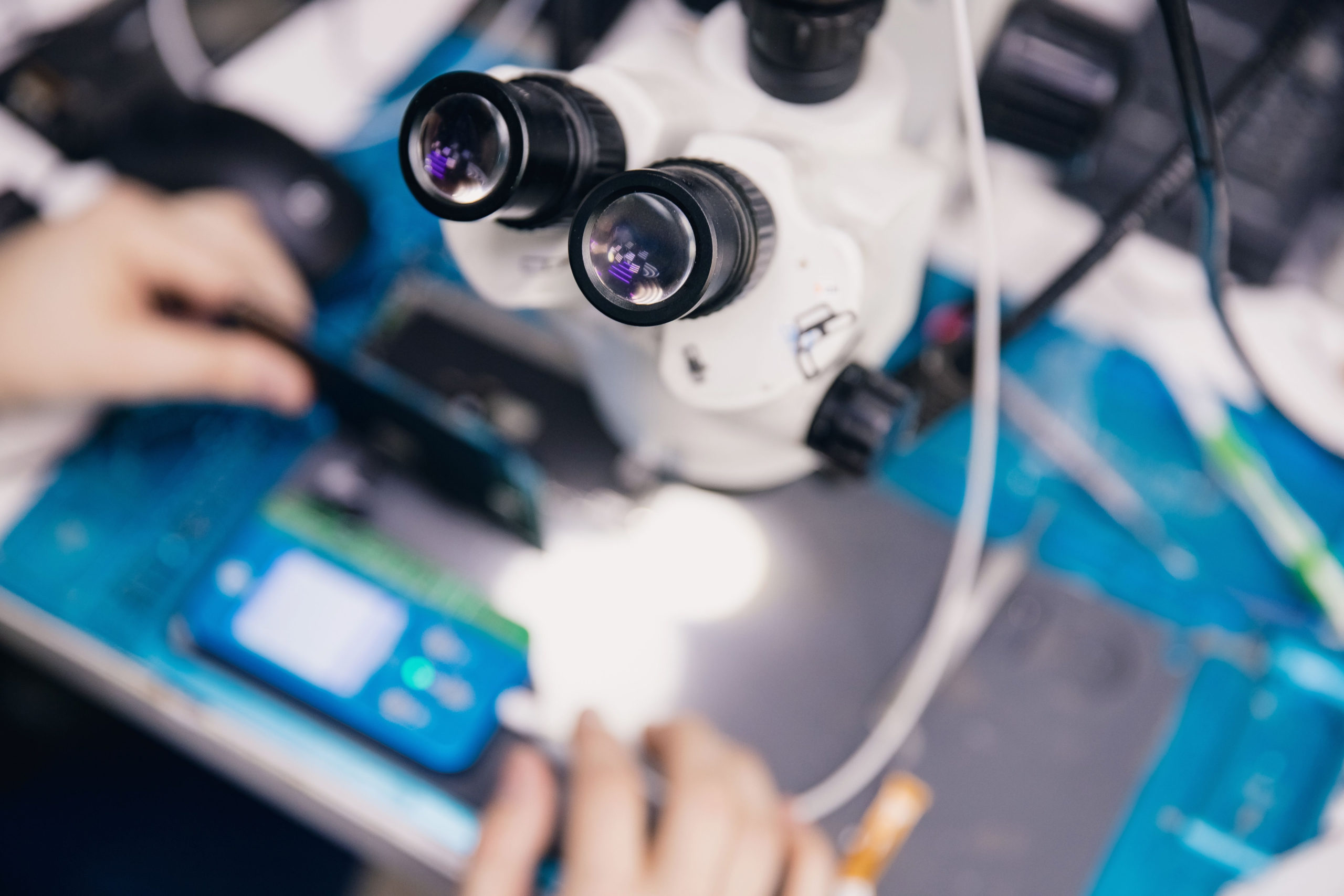While wearing gloves and washing your hands are important aspects of personal safety, so too is cleaning your microscope. When you use and take care of microscopes correctly, it greatly improves the safety and quality of life at your workplace. If you're unfamiliar with the cleaning and disinfecting process or want a refresher, here's an overview of how to use and take care of microscope frames and lenses.
How to Take Care of Microscope Bodies & Frames
Proper use and care of microscopes involve cleaning every part of the frame, including the focusing knob, eyepiece shades, stage handles, and others. First, unplug the microscope from any electrical source and, if using a ring light on a stereo microscope, unplug and remove the ring light and set it to the side. Start by taking your clean cloth and wiping off any particles from top to bottom — this prevents them from landing on any previously cleaned areas. Also, to clean more efficiently, use different sections of the cloth each time to avoid bringing back any particles. To remove any dirt or contaminants on the frame, soak your cloth in a dilute solution of neutral detergent in water, ring out the cloth thoroughly, and wipe down the frame being careful not to contact the lens in the process. Afterward, use a cloth slightly dampened in lukewarm water for one last rinse. Use a fresh, clean cloth to wipe everything dry. Use these same steps to clean a ring light, being careful never to saturate any electrical components or accessories.
While it's important to clean the microscope frame when you notice any dirt or stains, disinfecting it is also essential to eliminate any germs. Viruses can remain on the surface of a microscope for several days, so removing them greatly reduces the possibility of infecting others who use the equipment later. When disinfecting microscopes, it's recommended to use an ethanol-based solution, but isopropanol will suffice. Please note that other organic solutions may damage the plastic microscope parts, so using these alcohol solutions is much safer. Additionally, be sure to spray the cleaning solution onto the cloth you use to wipe instead of the microscope itself. The ideal dilution of alcohol to water (try to use distilled water or reverse osmosis purified water) is 70% alcohol (7 parts pure alcohol to 3 parts water). Isopropanol is often prediluted to 70% and this is ready to use without further dilution.
How to Take Care of Microscope Optical Parts
Lenses and objectives are integral components of microscopes and must be treated with care. Not only could lingering bacteria and viruses make you and others sick, but any dirt particles can obstruct observation. Therefore, ensuring the lens is thoroughly cleaned is an essential part of knowing how to use and take care of microscopes. Begin by using a loupe to inspect the surface of the lens and look for any particles. If there are any, use an air blower (puffer) to carefully remove them — however, never use compressed air for lens cleaning because it can leave a film behind.
Once all of the particles are gone, it's time to clean the lens. Lens cleaning will also disinfect it. It's important to use a special lens paper (lens tissue) during this step, as other kinds of paper or cloth contain loose fibers which can scratch the lens and leave fibers behind. Wrap a piece of lens tissue around a cotton swab. After dipping the lens paper in lens cleaner (readily available at pharmacies and large discount retailers), start wiping the lens in a circular motion from the center and moving outward. If the surface of the lens is too large for this method, rotate it slowly while holding the lens paper on the surface. It is important not to rub the glass as this may cause scratches and could remove some special coatings that have been applied to the glass. When you're done, examine the lens to ensure it is clean, and repeat as necessary.
For more information on the use and care of microscopes and to acquire new ones for your laboratory, contact UNITRON. We offer a variety of microscope products, including stereo microscopes, metallurgical and materials science microscopes, digital microscopes, comparison microscopes, and more. Give us a call today for further details.



